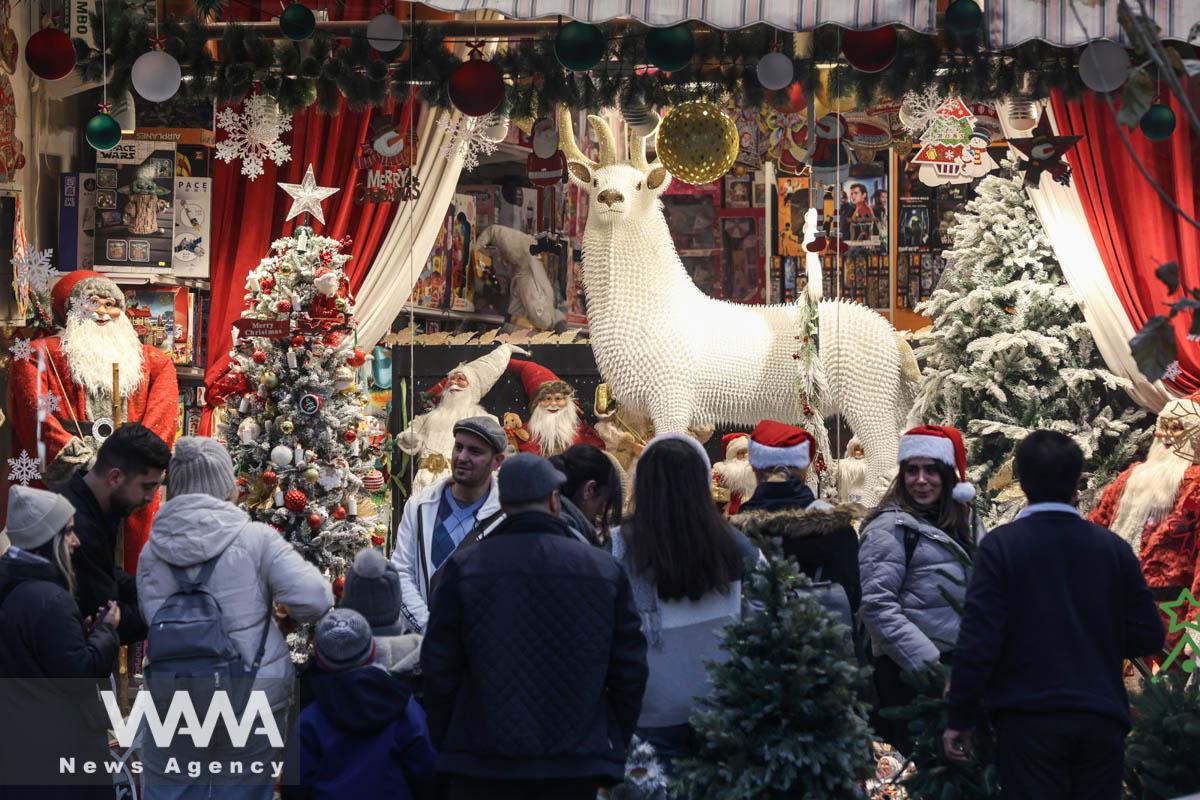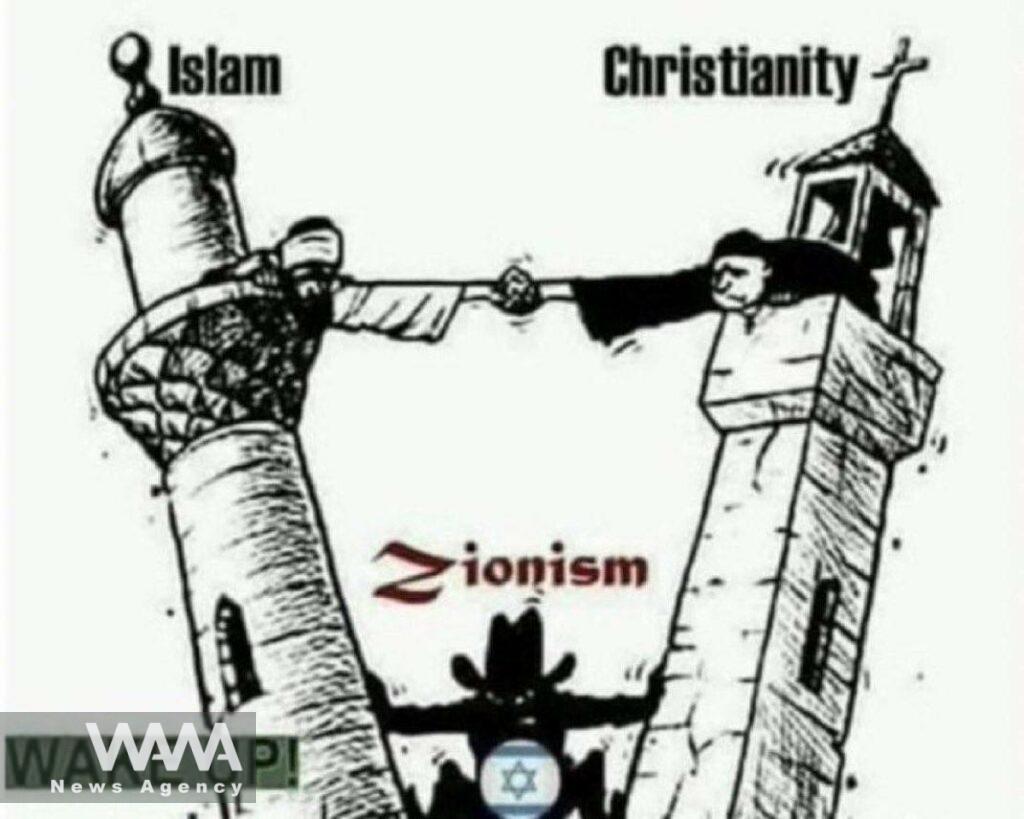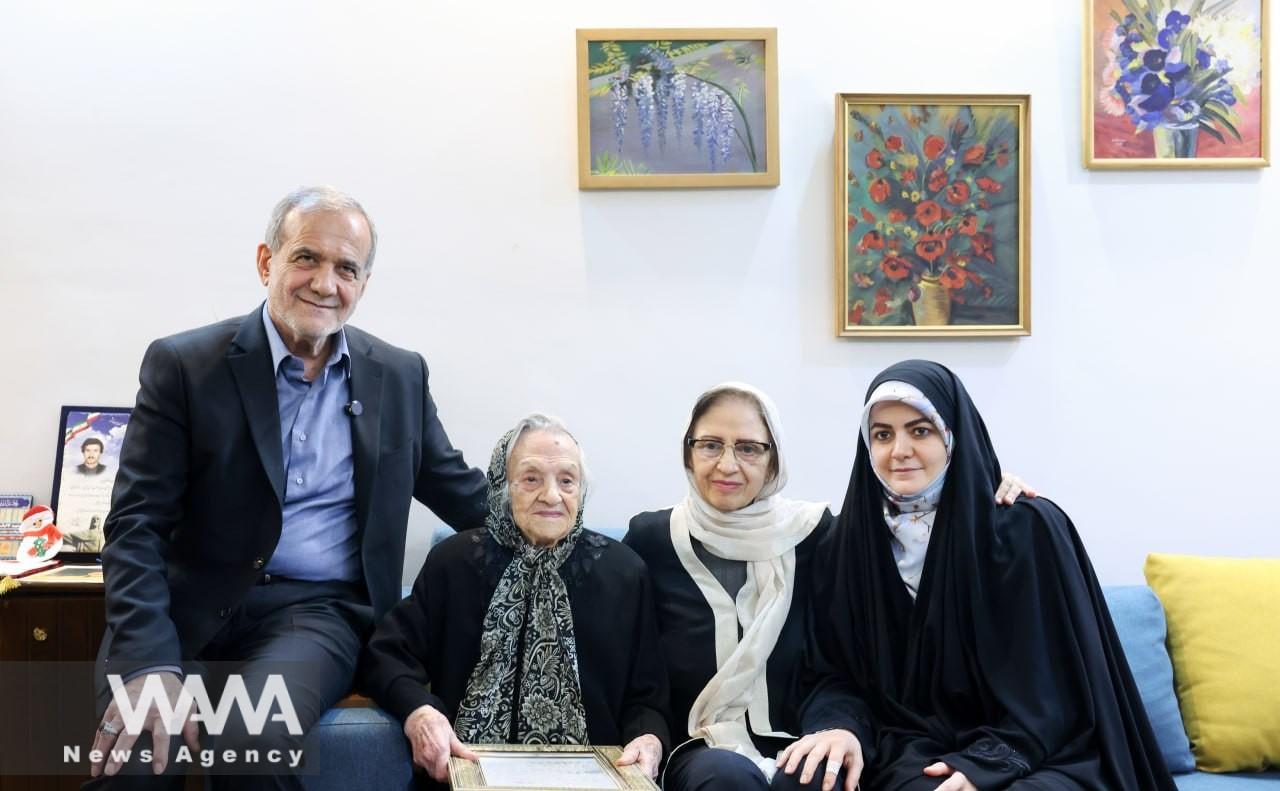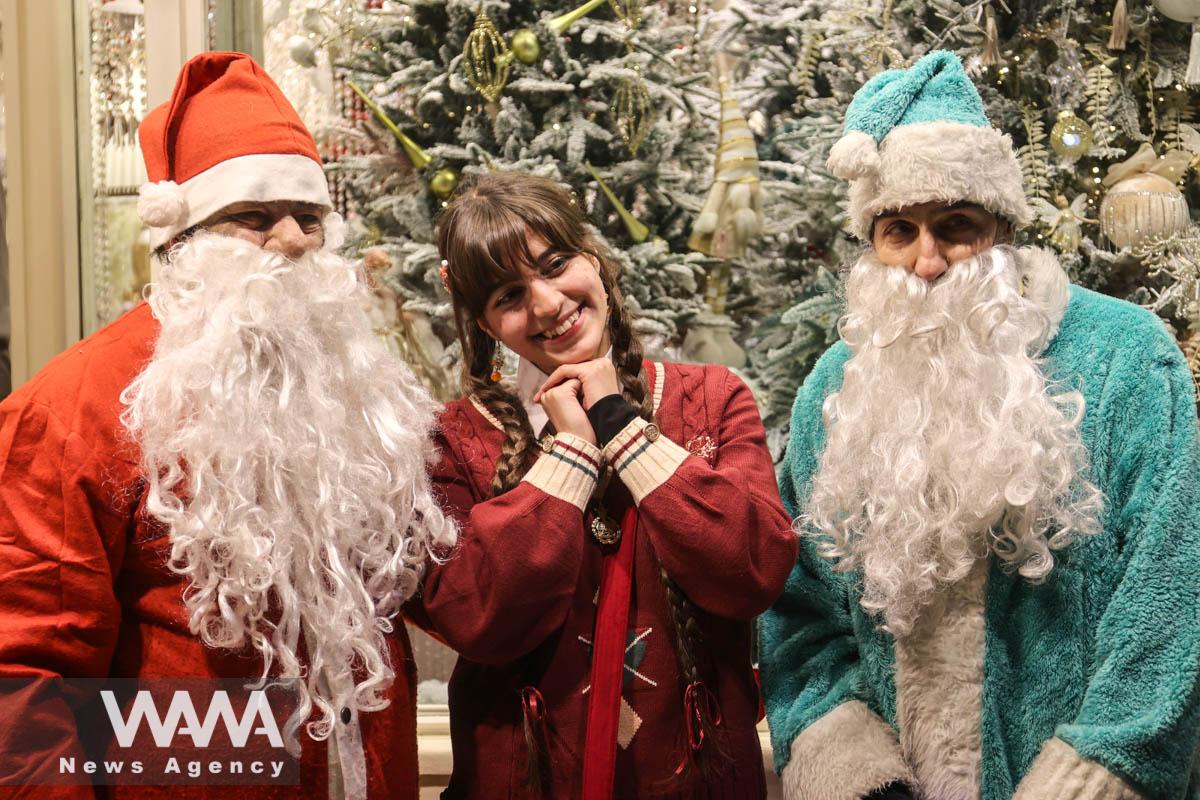Unveiling the Subtext of Zarif’s Christmas Message
WANA (Dec 26) – In a symbolic and impactful gesture, Mohammad Javad Zarif, Iran’s Deputy Strategic Affairs President, accompanied by his wife, visited a church in Tehran to extend his greetings for the New Year and made Christmas Wishes to the Christian community.
This move carries significance not only on a domestic and religious level but also conveys messages to an international audience. However, what underlying message does this gesture hold?

Iranian people stand next to a shop selling Christmas symbols in Tehran, Iran December 25, 2024. Majid Asgaripour/WANA WANA (West Asia News Agency)
The Significance of Zarif’s Church Visit
Zarif’s presence in the church symbolized a successful act of public diplomacy, effectively conveying the message of mutual respect among religions. This gesture transcends religious and cultural boundaries, showcasing Iran’s willingness for dialogue and global solidarity.
In his English message, he also emphasized this point, highlighting the shared religious values of Islam and Christianity through references to the Quran’s teachings about Mary and Jesus (peace be upon them).
Highlighting religious similarities also carried a special message for those attempting to sow division between Islam and Christianity—a reminder of the shared roots and foundational teachings of both religions, emphasizing their inseparable bond.
To Muslims, like Christians, Jesus is a true example of peace, justice, and compassion: universal values that unite us all as humans. Yet today, we face a painful reality. The ideals that Jesus taught us often seem far away from the world we live in, where so many innocents suffer, Zarif’s wife said.

A Twitter User’s Post About Religions. Social media/ WANA News Agency
In his message, Zarif underscored the importance of justice and peace, calling on Western countries to reassess their policies influenced by the Israeli regime. He warned that such policies not only harm Western national interests but also entangle the world in an endless cycle of wars.
I particularly urge our Christian brethren in the West to reflect on how policies pushed by Israel have distorted your governments’ moral compasses—even as they clearly contradict your own national interests and compromise your own safety at home, Zarif mentioned.
He added: “Today, Netanyahu and his cohorts seek to embroil the West in new misadventures which only serve their personal interests. This threatens to drag the world into yet another cycle of endless wars.”
Diplomatic and Cultural Messages
Zarif’s action can be seen as an effort to improve Iran’s global image and counter Islamophobia, particularly in the West. This gesture has the potential to reduce international tensions and misunderstandings.
Moreover, by strengthening public diplomacy, Iran has conveyed a message of peace and solidarity to the world. This message could foster empathy and enhance cooperation, especially in combating oppression and genocide in Gaza.
As we reflect on this Christmas, let us join hands to alleviate the suffering of children in Gaza, Lebanon, Syria, Yemen—and indeed around the world. Let us come together, irrespective of our faiths, to restore dignity, hope, and a sense of justice to those in need, Zarif stated.
These efforts were complemented by the support of other Iranian officials. For instance, Iran’s Supreme Leader, in a message marking the birth of Jesus Christ, stated: “If Jesus (peace be upon him) were among us today, he would not hesitate for a moment to fight against the leaders of global oppression and arrogance, nor would he tolerate the hunger and displacement of billions of people driven to war by oppressive powers.”
Additionally, the Supreme Leader’s annual meetings with religious minorities, particularly Christians, serve as a prominent symbol of fostering interfaith solidarity—a goal Iran has consistently pursued.

Iran’s President, Pezeshkian, visit with families of Christian martyrs from the Iran-Iraq War, December 2024. Social media/ WANA News Agency
Masoud Pezeshkian, Iran’s president, also underscored the importance of respect for religions and international cooperation during his visit with families of Christian martyrs from the Iran-Iraq War and in a congratulatory message to Pope Francis.
On the anniversary of Jesus Christ’s birth, Pezeshkian emphasized during his meeting with Christian martyr families: “Religion and prophets have brought nothing but the path of righteousness. No prophet or religion advocates anything but truth and justice.”
In his message to Pope Francis, Pezeshkian expressed hope: “As we approach the New Year, we witness meaningful steps toward peace, security, and the freedom of oppressed and downtrodden nations, especially the oppressed people of Palestine.”
Furthermore, Iranian Foreign Ministry Spokesman Esmail Baqaei highlighted Iran’s rich history of religious coexistence in his message, describing the birth of Jesus Christ as an opportunity to promote justice and kindness.
Iran’s Public Diplomacy Strategy
These actions can be seen as part of a long-term public diplomacy strategy aimed at presenting a unified and peace-seeking image of Iran. Such approaches, in addition to strengthening international relations, can contribute to reducing political and security challenges in the West Asia region.
The escalating tensions in the Middle East could lead us to an uncontrollable global crisis. In an era where advanced weaponry and global interconnectivity amplify the consequences of armed conflict, a third world war would be catastrophic for all humanity. And there will be no winners, he said.

An Iranian woman poses with Santas for a photo in front of a shop selling Christmas symbols in Tehran, Iran December 25, 2024. Majid Asgaripour/WANA WANA (West Asia News Agency)
In his message, Zarif emphasized the need to counter shared security threats, such as extremism, and called for inclusive cooperation among nations and religions to achieve lasting peace and stability.
These messages, particularly in the current global context, can pave the way for enhanced international dialogue and the reduction of religious and cultural divisions.
Mohammad Javad Zarif’s symbolic gesture and the accompanying messages reflect a strategic and multidimensional approach in Iran’s foreign policy, utilizing tools of public, cultural, and even domestic diplomacy to advance its objectives.
READ MORE:
Approximately one million Christians live in Iran, though this figure is not precise. Christians are represented in Iran’s parliament by four members.
The number of churches in Iran is estimated to be between 300 and 600, including both active and inactive ones, with 90 churches listed as national heritage sites.












